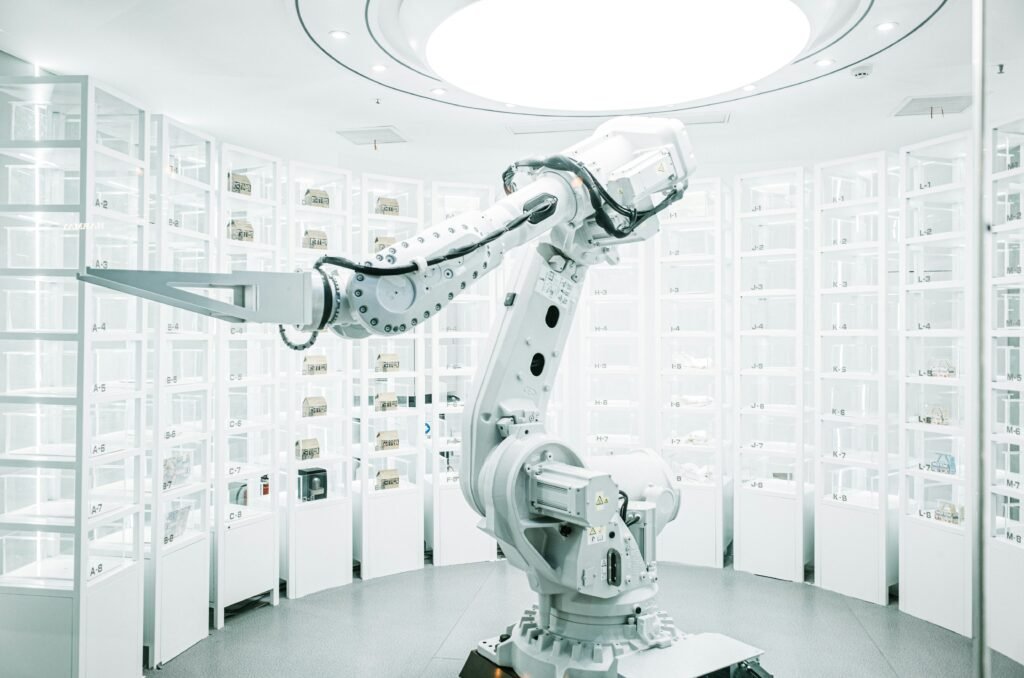OpenAI recently faced a setback in their development of the ‘Arrakis’ AI model. The company had high hopes for Arrakis, as it would have allowed them to run their popular chatbot, ChatGPT, at a lower cost. Additionally, the success of Arrakis would have helped OpenAI demonstrate its ability to create large language models quickly to Microsoft, as they were in the midst of finalizing a multi-billion dollar investment and product deal. However, by mid-2023, OpenAI had decided to drop the Arrakis project after it failed to meet their efficiency expectations. This article delves into the details of OpenAI’s setback and explores the implications it may have for the company’s future endeavors.
Background of OpenAI’s Arrakis AI Model
Introduction of OpenAI’s ChatGPT model
OpenAI’s ChatGPT model gained significant attention and popularity. Inspired by this success, OpenAI started working on a new AI model called Arrakis.
Development of Arrakis as a cost-effective alternative
Arrakis was intended to be a more efficient and cost-effective alternative to ChatGPT. OpenAI aimed to leverage Arrakis to enhance the capabilities of their chatbot while reducing operational expenses.
Importance of Arrakis in negotiations with Microsoft
Arrakis played a crucial role in OpenAI’s negotiations with Microsoft. OpenAI hoped to demonstrate their ability to develop successive large language models quickly, which was essential as the two companies were in the process of finalizing a $10 billion investment and product deal.
Setback: Abandoning the Arrakis Launch
Inefficiencies in the Arrakis model
Unfortunately, the Arrakis model did not perform as efficiently as OpenAI had anticipated. It faced several inefficiencies that hindered its operational effectiveness and cost-effectiveness.
Decision to scrap the Arrakis launch
Due to the inefficiencies encountered, OpenAI made the difficult decision to abandon the launch of Arrakis. This setback was unexpected, considering the initial expectations surrounding the model.
Insights from sources familiar with the situation
Insiders familiar with the situation revealed that OpenAI had to scrap the Arrakis launch due to its underperformance. These sources provided valuable insights into the challenges faced by OpenAI during the development and implementation of Arrakis.

Implications for OpenAI
Impact on OpenAI’s partnership with Microsoft
The setback faced by OpenAI in relation to the Arrakis model unfortunate timing, as the negotiations with Microsoft were at a critical stage. The underperformance of Arrakis might have affected OpenAI’s ability to showcase their innovation and influence the terms of the deal.
Repercussions on the development of large language models
The decision to abandon the Arrakis launch raises concerns about the challenges associated with developing large language models. OpenAI’s setback highlights the complexity of optimizing efficiency and cost-effectiveness while maintaining high performance.
OpenAI’s strategy moving forward
In the face of the Arrakis setback, OpenAI will need to reassess its strategy and identify alternative approaches to advancing their AI models. This setback serves as a learning opportunity for OpenAI to refine their development processes and address potential shortcomings.
Technical Challenges of the Arrakis Model
Performance issues in Arrakis
One of the significant technical challenges faced by the Arrakis model was performance-related issues. The model did not deliver the expected results in terms of efficiency and effectiveness.
Difficulties in optimizing efficiency
OpenAI encountered difficulties in optimizing the efficiency of the Arrakis model. This challenge highlights the intricate nature of developing AI models that strike a balance between performance and cost-effectiveness.
Lessons learned for future AI model development
The setbacks faced during the development of Arrakis provide valuable lessons for OpenAI when it comes to future AI model development. OpenAI can leverage these lessons to refine their processes and achieve better outcomes in future projects.

Comparison with GPT-4
Differences between Arrakis and GPT-4
While Arrakis faced setbacks and eventually was abandoned, GPT-4, another AI model developed by OpenAI, was successfully completed earlier in the year. GPT-4 and Arrakis differ in terms of their performance, efficiency, and cost-effectiveness.
Advantages and disadvantages of each model
GPT-4, despite being developed separately from Arrakis, has its own set of advantages and disadvantages. Understanding these strengths and weaknesses can provide insights into the progress OpenAI has made in AI model development.
Relevance of GPT-4 in light of Arrakis setback
The setback faced by Arrakis does not diminish the value and relevance of GPT-4. While Arrakis may have faltered, GPT-4 still represents significant progress in the field of AI and demonstrates the potential for future advancements.
Response from OpenAI
Official statement on the Arrakis setback
OpenAI has issued an official statement acknowledging the setback faced by the Arrakis model. The statement conveys OpenAI’s commitment to transparency and highlights their dedication to continuous improvement.
OpenAI’s commitment to innovation and improvement
Through their response to the Arrakis setback, OpenAI emphasizes their unwavering commitment to innovation and improvement in the field of AI. OpenAI recognizes setbacks as learning opportunities and aims to address the challenges encountered effectively.
Addressing concerns and expectations of stakeholders
OpenAI is actively addressing the concerns and expectations of their stakeholders in response to the Arrakis setback. They are working to rebuild trust and reassure stakeholders that they remain dedicated to pushing the boundaries of AI research and development.

Public Reaction to OpenAI’s Decision
Industry and media response to the news
The industry and media have responded to OpenAI’s decision to abandon the Arrakis launch. Analysts and experts are offering their perspectives, speculating on the potential impact of this setback on OpenAI’s reputation within the industry.
Speculation on OpenAI’s capabilities and reliability
The decision to abandon Arrakis has sparked speculation about OpenAI’s overall capabilities and reliability. Some are questioning whether OpenAI can consistently deliver on their promises and whether they have the necessary expertise to develop successful AI models.
Impact on public perception of OpenAI’s AI models
OpenAI’s setback with Arrakis might impact public perception of their AI models. The public may become more cautious about the potential limitations and challenges associated with AI development, leading to increased scrutiny of OpenAI’s future endeavors.
Lessons for the AI Community
Importance of transparency and accountability
The Arrakis setback highlights the importance of transparency and accountability within the AI community. OpenAI’s willingness to openly address the challenges they faced contributes to the overall knowledge sharing and growth of the AI industry.
Challenges in developing efficient AI models
Developing efficient AI models is a complex task that presents numerous challenges. The setback faced by OpenAI with Arrakis serves as a reminder of the difficulties involved in creating AI models that meet performance, efficiency, and cost-effectiveness requirements.
Balancing innovation with practical considerations
The Arrakis setback underscores the need to strike a balance between innovation and practical considerations when developing AI models. Innovation should be accompanied by a thorough understanding of the practical implications and limitations of AI technology.
Future Opportunities for OpenAI
Exploring alternative AI model development
OpenAI has the opportunity to explore alternative approaches to AI model development. By learning from the Arrakis setback, OpenAI can refine their strategies and processes to achieve better outcomes in future AI projects.
Collaboration and partnerships for improved models
Collaboration and partnerships within the AI community can contribute to the development of improved AI models. OpenAI can leverage their relationships and expertise to forge collaborations that enhance the effectiveness and efficiency of their models.
Long-term goals and aspirations
Despite the setback faced with Arrakis, OpenAI remains focused on its long-term goals and aspirations. They are committed to advancing the field of AI and continue to push boundaries to create impactful and groundbreaking AI models.
Conclusion
Reflecting on the setback encountered with the Arrakis model, OpenAI acknowledges the lessons learned and identifies areas for improvement. OpenAI’s commitment to innovation and improvement remains unwavering, and they continue to play a significant role in shaping the AI industry’s future. Despite the challenges faced, OpenAI’s impact in the field of AI will continue to be felt as they drive forward toward further advancements and achievements.





